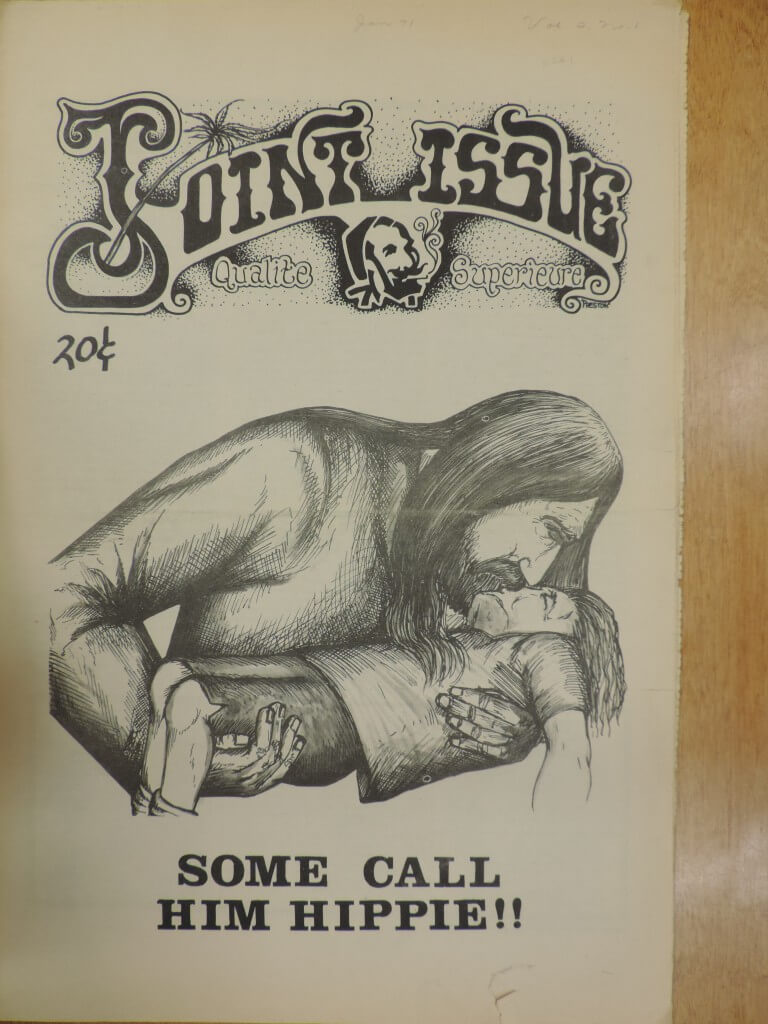In 1949, almost a year after I was born, the latest edition of the 30 volume Encyclopedia Americana hit the streets of America. The collection of big books was the first multi-volume encyclopedia sold in the United States, starting way back in 1829. Each year it grew in size, sometimes adding new volumes to cover more subjects. By 1949, it was truly comprehensive.
I own a complete set of the 1949 edition, which my wife’s dad passed on to me after his death a few years ago. By all accounts, the volumes were a sensation when first published. Not only were they successfully sold door to door throughout the United States, but libraries everywhere stocked them on their shelves for scholars and the public alike to explore and absorb.
1949 was a few short years after the end of World War II. Colleges overflowed with legions of returning GIs who studied for free courtesy of the recently passed GI Bill. The Encyclopedia Americana became a beacon of knowledge and enlightenment for hundreds of thousands of optimistic Americans who were ramping up their skills to conquer the ignorance and backwardness of a world they knew all too well from their recent exposure to the wars overseas.
After perusing these volumes during the past few years, I have been struck by how much we knew in 1949, and by how much we thought we knew but didn’t. I was dumbfounded by racist patterns of thinking, which seemed to permeate the collection. It came as a complete surprise. Modern people could be excused for thinking that Hitler himself wrote some of the articles, I thought to myself.
People have said that racism is the original sin of America; that we have never come to terms with the bad things we did (and continue to do), because some of our European forefathers — scientists even — believed that Africans were medically degenerate.
Our country enslaved blacks because ostensibly responsible people told our ancestors that Negroes were animals, like lions or tigers. Of course it was OK to work them like pack-animals, some thought. Nothing wrong with that. Nothing at all. Besides, slavery was in the Bible.
After slavery ended, whites continued to segregate the races. And they still do.
Look at Florida if you don’t believe it. In the State of Florida, segregation is a way of life. Americans, some among us, seem to be oblivious to the evil of our actions and unaware of the demonic origin of many of our ideas about what is true and what is right.
We tend to repeat lies that hurt whole classes of people; lies that help no one but drive to despair and even suicide folks like South American immigrants, gays and, yes, Middle Eastern refugees who struggle to get by in a society that seems to value only excellence and perfection, money and power, symmetry and form, orthodoxy and moral rectitude.
We look down on, shun, and isolate authentic human beings who typically possess attributes we don’t admire like humility, lowliness, incompetence, average intelligence, awkward manners, social inadequacy, clumsiness, unreliable physical ability, psychological disabilities, ugliness, poor hygiene, ravaged skin, lack of hair, too much hair, unpleasant smells, thinness, fatness, and on and on.
We condemn millions to long prison terms who have done nothing more than act like fools; who have made mistakes, which with a little maturity and wisdom gained in the fresh air of freedom they might not ever make again.
Many readers can probably think of many undesirable attributes of human beings they find repulsive and would repress with long prison terms if only they could. It’s a desire best left unfulfilled.

Our inability to accept and live next to people who have less money, less education, different physical traits; who might be less attractive and less polished; who may not understand the world as we do; who are different in some way we find compelling is destroying our humanity; our ability to love and accept others.
Think about it.
We wreck any chance for happiness; any sense of well-being for tens of millions of ordinary people — probably hundreds of millions — who, it turns out, have very few advantages in this life of dog-eat-dog competition; it’s a fight that some lack the temperament to endure. Bigotry is demoralizing for those bullied by it; it is diminishing our country and our world.
We seem unable to even look at people with physical disabilities and handicaps; the blind; the deaf; the burned; the paraplegic; the paralyzed, the mentally incapacitated, the depressed, the hyperactive and the socially fearful.
Many Americans are hiding themselves behind gates, guard shacks, and walls to avoid facing the simple truth that people are diverse; God demands that we accept and respect everyone, because each person — even those who are unattractive and ungrateful in our own morally-damaged sight — are made from the stuff of God Himself and are in the reality we shun truly beautiful and deserving of respect and deference.
Jesus said that God loves the wicked. He loves people who are weak and powerless and undesirable. How can we do less?
Well… one reason is that we are degenerate, everyone of us, whether we are able to see the ugly truth or not. The most admirable person falls short of God’s glory.
Who believes it’s true?
Anyway, I thought that these two entries from the 1949 Encyclopedia Americana, reprinted below in their brutal original version, might help open the eyes of folks who are blind to the cesspool of ideas which have corrupted the spirits of our country; which have driven some people to avoid, ostracize, exclude, and kill people they think are unworthy to enjoy the advantages and privileges they demand for themselves.
These tombs of hate from our past sat on bookshelves and in libraries where they were read for many decades after their publication. Hatred poured forth not only from encyclopedias like the Americana, but from all forms of media and public discourse, it turns out.
The nasty rhetoric of race, exclusion, and the exaggerated elevation of our elites into a pantheon of god-like celebrities has poisoned our minds and our souls; it continues to poison our churches and schools; the military and our public institutions. It’s painfully evident in the rabid venom-spewing aspirants we find in our politics today who I won’t name.
Why demean a good essay by recognizing deplorable people? The president is a public celebrity who rose to power on an ocean tide of hatred. I guess it does no harm to call him out.
People claim they mean well and are doing God’s will, but golly-gee, someone has to say it (it might as well be me): the movement to transfer children from public schools into homeschooling; the stampede to place civilians armed with concealed weapons into churches and schools; the attempts to scare women out of exercising their constitutionally protected freedom to make healthcare choices involving their bodies; fire bombing healthcare clinics that help the poor; intimidating writers like myself who publish views unpopular with morons — all are symptomatic of a country that has become less free, more fascist, less brave — certainly less accepting, less tolerant, less nurturing, and less forgiving.
America is a mean-spirited place for many people. Even upscale people in high places are afraid to speak their minds plainly out of fear for the faceless billionaires who pull their strings and determine their futures. Look at all the safe-talk on television. Some people call it political correctness. What does that term mean?
It means people’s careers get ruined if they speak about certain subjects in a frank and unconventional way. When was the last time you heard a celebrity advocate for something as innocuous as a progressive income tax? Shorter prison sentences? Maximum incomes? Estate size limits? Limits on inherited wealth?
What accelerates and widens inequality can’t be right.
Our celebrities are held in-check by tight leashes. And it isn’t the public holding the leashes. To remain in the spotlight, celebrities must wear muzzles. Does anyone think they are going to complain?
Try to remember the names of celebrities who said something controversial and were never heard from again. You might remember their faces, maybe even some of the shows they were on. Few remember their names, more likely than not. They dropped off the face of the earth. They disappeared. The list is long, it really is.
I write about forbidden subjects all the time, but I’m not a celebrity. No one controls me, not since I resigned my memberships in certain organizations and work for free. But the public doesn’t read my blog. And, yes, some subjects are off-limits even for writers like me who want to believe they are free.
I don’t write about Israel or North Korea or drug cartels; I don’t bad-mouth artists; I don’t condemn creative people, because people with unusual points of view who have talent are fragile and easily frightened to silence; money and fame drive people into isolation bubbles. I don’t publish articles about my sexuality. I tried once; it didn’t turn out well.
Sometimes I break my own rules, it’s true. But let’s get back on message.
I don’t feel like I’m overstating. Below are two examples of a vicious way of thinking, which was mainstream in the decades following 1949. Today in 2015 some folks continue to embrace crazy reasoning. Who will exorcise the evil winds that freeze-dry hearts to raging cold?
Tolerance isn’t enough. It’s uncommitted and indifferent.
Embracing outcasts in love is the way.
It’s not possible to embrace the marginalized in love when advantaged people segregate themselves by income, class, and race. No one can help when they push aside those who don’t think like them or look like them or act like them. No one who believes that diversity is a plague to be avoided can help desperados who need a hand up.
Think about it.
Who can save their children and grand-children when they lack the courage to confront the billionaires who built the gilded cell-block we call America? Billionaires built prison-America to protect themselves from us.
Here’s the problem. Most folks don’t know the names of the billionaires who rule them. Who can reason with the wealthy? Who can find them?
The truth is, they find us, usually when they need someone like a soldier to fight to protect their property or a worker who will add value to their estates by performing tasks for low wages.
The problem is: they don’t love us. Otherwise they would live in the world where we live, but they don’t. Then again, they might allow us to live in their world, where the water in their pools is blue and clean and the sun is warm. But they won’t do that either.
Maybe someday. Someday maybe if they change, they will. They will unlock the gates. They will throw away the keys. They will let us in.
On that day we will become one people, one nation, indivisible, under God.
While we wait, we change ourselves. We learn to live unafraid. We learn to share our advantages. We teach ourselves to love the unloved.
What else is there?
Billy Lee
[The following are excerpts from the 1949 edition of The Encyclopedia Americana. Billy Lee does not endorse any of it. The Editorial Board.]
DEGENERACY. Unfavorable environment is now generally recognized as the chief cause of the failure of individuals to attain the physical, mental, and moral norm of the race. In certain individuals, however, a defective constitution may predispose them toward an inadequate development of mental, and especially moral, qualities. Such individuals are known as degenerates.
In many such cases the basis of degeneracy is a lesion of the nervous system or of the sense organs. Congenital blindness and deafness can result in idiocy unless early measures are taken. However, the fundamental defects may be obscure and inaccessible to the pathological anatomist of the present day. The neuro-sensory defects are often, but not always, accompanied by malformations of a more conspicuous character, known as stigmata.
These include various distortions of the external ear, facial asymmetry, very early or very late closure of the cranial sutures, polydactylism and other digital anomalies and various signs of imperfect or abnormal development. Individual stigmata may be present in a person of normal mental and moral make-up, but the concurrence of a considerable number of stigmata is a fairly good sign of degeneracy.
The forms assumed by degeneracy are very various. The mental defect varies from utter idiocy, where the patient is unable to protect himself from immediate physical danger, through imbecility, where he is still incapable of carrying out the daily processes of dressing and undressing, washing, etc., to the various grades of feeble-mindedness, in which he is able to satisfy all his immediate personal needs, but cannot earn an independent livelihood nor associate with his fellows on equal terms.
The causes of degeneracy are manifold. The racial poisons of alcohol, drugs and venereal diseases are responsible for a large proportion of the cases, though in many cases alcoholism and drug habits may be symptoms rather than causes of degeneracy. Any factor which enfeebles the mother — poverty, illness or the like — may injure the mental and moral constitution of the child as well as its physical constitution. However, the most important cause of degeneracy is in all probability the inherent inferiority of the stock.
That certain forms of degeneracy exhibit a pedigree conforming to the Mendelian law is now an established fact. This hereditary quality of degeneracy, together with the fact that degenerates are often likely to have many children, owing to their immorality, makes the problem of degeneracy a most serious one.
The so-called Jukes family cost the taxpayers of New York State millions of dollars in the course of the 19th century. For this reason many States have enacted laws making it legal in certain cases to perform on degenerates operations designed to prevent their propagating their kind.
See ALCOHOLISM; CRIMINOLOGY; DEGENERATION; EUGENICS; FEEBLE-MINDEDNESS; IDIOCY; INSANITY; PAUPERISM.
Bibliography. — Gillin, J.L., Poverty and Delinquency (New York 1926) ; Slawson, J., Delinquent Boy (Boston 1926) ; Glueck, S. S. and E., Five Hundred Delinquent Women (New York 1934) ; Chassell, C. R., Relation Between Morality and Intellect (New York 1935) ; Lunden, W. A., Juvenile Delinquency (Pittsburg 1936) ; Burt, C. L., Subnormal Mind (New York 1937) ; Karpman, B., Case Studies in the Psychopathology of Crime (Washington 1944).
DEGENERATION — a work of Max Nordau (1895), which aimed at a scientific criticism of those degenerates not upon the acknowledged lists of the criminal classes. Degenerates, asserted Nordau, are not always criminals, prostitutes, anarchists, and pronounced lunatics; they are often authors and artists.
These, however, manifest the same mental characteristics, and for the most part the same somatic features, as the members of the above-mentioned anthropological family, who satisfy their unhealthy impulses with the knife of the assassin or the bomb of the dynamiter, instead of with pen and pencil….
Now I have undertaken the work of investigating the tendencies of the fashions in art and literature; of proving that they have their source in the degeneracy of their authors, and that the enthusiasm of their admirers is for manifestations of more or less pronounced moral insanity and dementia.
One word best describes my reaction to the above entries from the 1949 Encyclopedia Americana: Yikes!
Billy Lee












